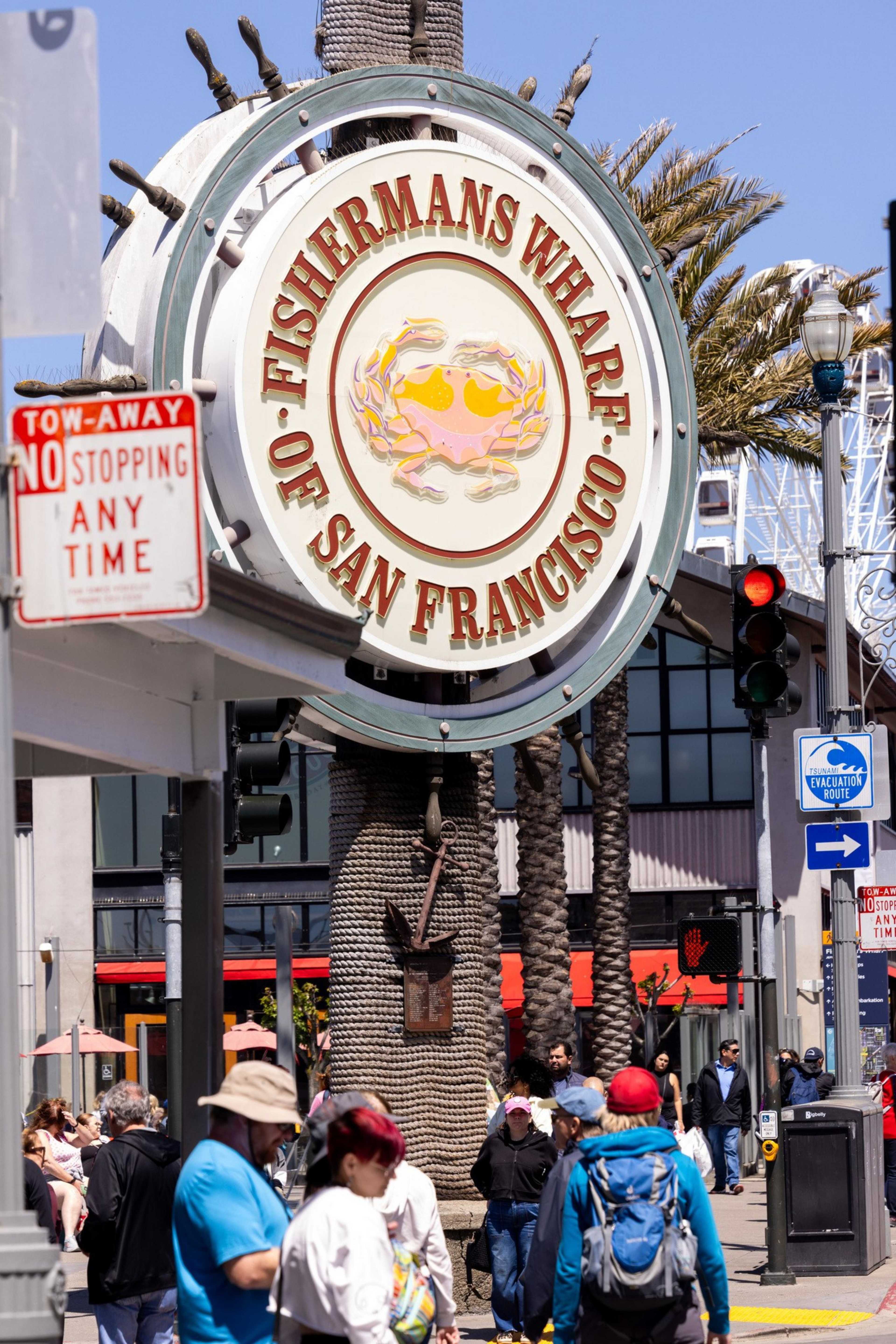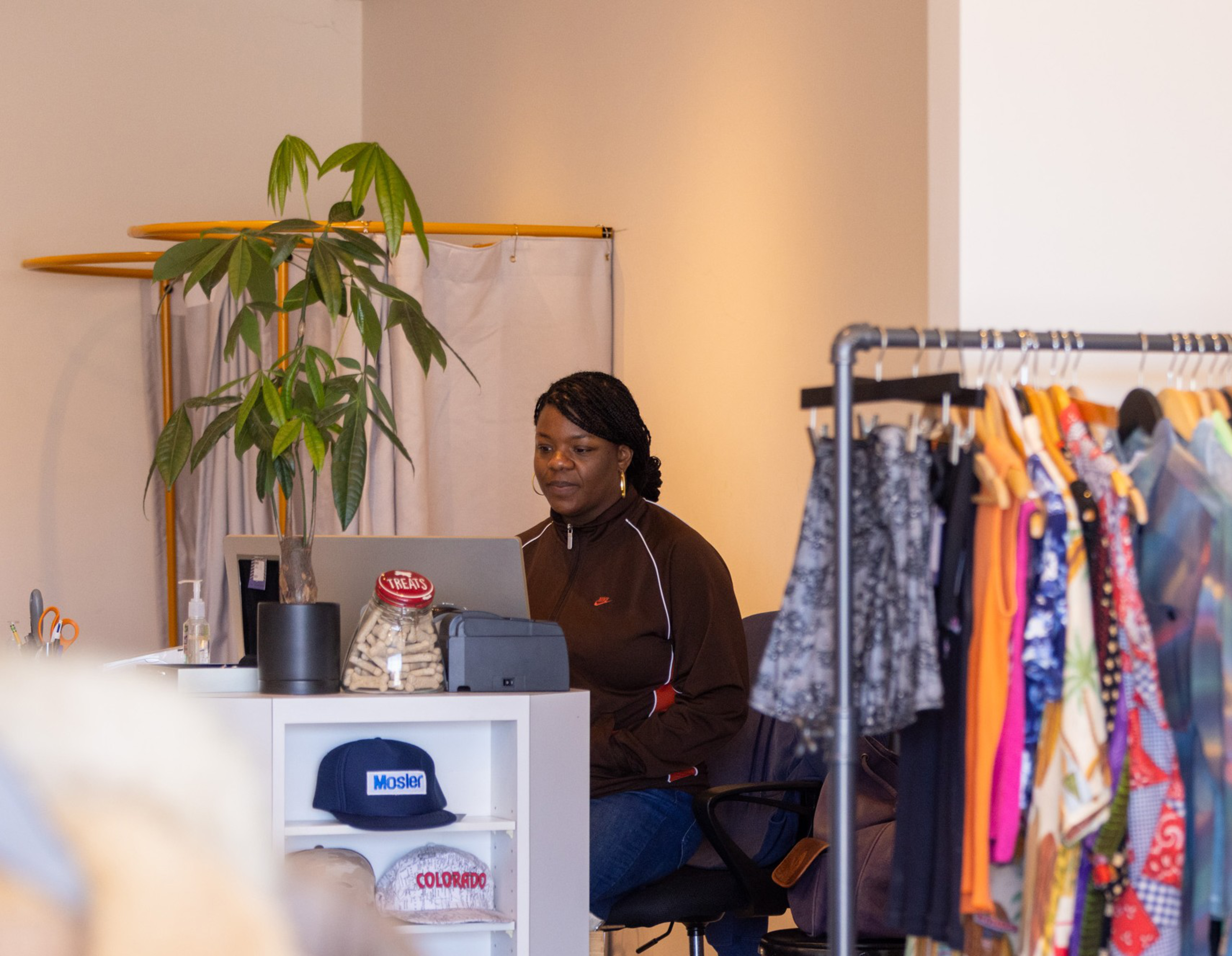It’s a sunny Thursday afternoon as Don McFarland, owner of 97-year-old Fisherman’s Wharf mainstay Sabella & LaTorre, stands behind the bar observing his bustling restaurant and the tourists cracking crab open at the tables outside.
“Do you see any homeless people sleeping in my doorway?” McFarland said, with an edge of annoyance in his voice. “Do you see any poop in my doorway? Do you see broken windows? No.”
McFarland’s diatribe is a direct response to a new lawsuit filed against the city (opens in new tab) by Herringbone Tavern Inc., owner of Tarantino’s and The Grotto, two shuttered historic restaurants prominently located in the neighborhood. Both restaurants largely stopped operating in 2020 and have since vacated their storefronts.
In the complaint, (opens in new tab) the restaurants’ owner, Chris Henry, blamed his business struggles on the deterioration of the area, which he said is San Francisco’s fault. He claims the city’s inability to “maintain the character of Fisherman’s Wharf” equates to it breaching its legal responsibility as a landlord.


The city and the Port’s “willful failure to safeguard the historic Fisherman’s Wharf against out of control unhoused population, criminal activity in and around the Fisherman’s Wharf, and unsafe structural conditions” caused the restaurants to be “irreparably harmed,” Herringbone’s lawyers said in a statement Thursday.
Herringbone and the city have been locked in a monthslong legal back-and-forth, which began when the port accused the business of owing $1.4 million in back rent, after refusing to pay for years. The city dropped its eviction claims when the restaurants closed. Now, in its own suit, Herringbone wants to be reimbursed for $2 million in renovations it conducted, as well as an unspecified amount for damages to its reputation and lost revenue.
Neighboring businesses fully admit the pandemic has brought some tough times, but McFarland and other local shop owners called foul on Herringbone Tavern holding the city responsible for its own business failures.
On the contrary, McFarland said, the Port of San Francisco has tried to ease burdens and issues he’s brought forward, like by offering rent concessions during the early days of the pandemic and by cracking down on illegal vendors in the area.
“It’s kind of absurd,” McFarland said. “When you’re allowed to operate while you don’t pay rent, it takes a lot of nerve to sue.”

Nick Hoppe, a fellow Fisherman’s Wharf business owner who runs six retail shops and a restaurant in the area, also didn’t mince words.
“On the surface, it’s ridiculous,” he told The Standard. While he admitted to reading news articles rather than the filing itself, Hoppe said that his interpretation of the lawsuit’s premise strikes him as a cop-out.
“It was just bad timing on his part, but that’s what business is all about—sometimes you win and sometimes you lose,” he said. “To blame it on the city, it just doesn’t seem right.”
San Francisco officials, too, had some choice words about Herringbone’s litigation.
“Over the last year, Herringbone has attempted a number of maneuvers to get out of paying the $1.7 million it owes the City in back rent,” Jen Kwart, a spokesperson for the City Attorney’s Office, said in a statement. “This appears to be yet another attempt.” (She added that her office had not yet been served the suit, but will review it and respond in court.)
Both Hoppe and McFarland said that negative narratives about the wharf’s state—and San Francisco overall—have been drastically overblown.
The tourism destination’s bad reputation doesn’t align with the day-to-day reality Hoppe sees. The wharf remains beautiful and safe, he said.


Porsha Lewis, who works at vintage shop Textures, opened by her brother on Jefferson Street last year, said the area feels cleaner and busier than she expected, with a recent uptick in shoppers.
“If I didn’t work down here, I’d think ‘Yeah, it’s gone to shit,’” she said. “But there’s a lot of tourists here! I talk to people from all around the world. Maybe there’s not as many as there used to be, but people still come here.”
For Juan Alvarado, who runs Camera House, the wharf’s biggest problems aren’t crime or cleanliness, but the fact that too many businesses, like Tarantino’s and The Grotto, are currently empty.
He’s hoping that those restaurants—as well as other now-vacant mainstays like Pompei’s and Lou’s—find new tenants soon, then start drawing back more tourists.
“It doesn’t matter who opens it,” Alvarado said. “I just want it to be opened.”
Hoppe, who recently took over Frank’s Fisherman (opens in new tab) as its owners retired, echoed that point: It’s closed businesses that are the biggest impediments to the wharf’s vibrancy.
“The wharf is the same as it’s always been,” Hoppe said. “The only difference between now and then is the vacancies.”
